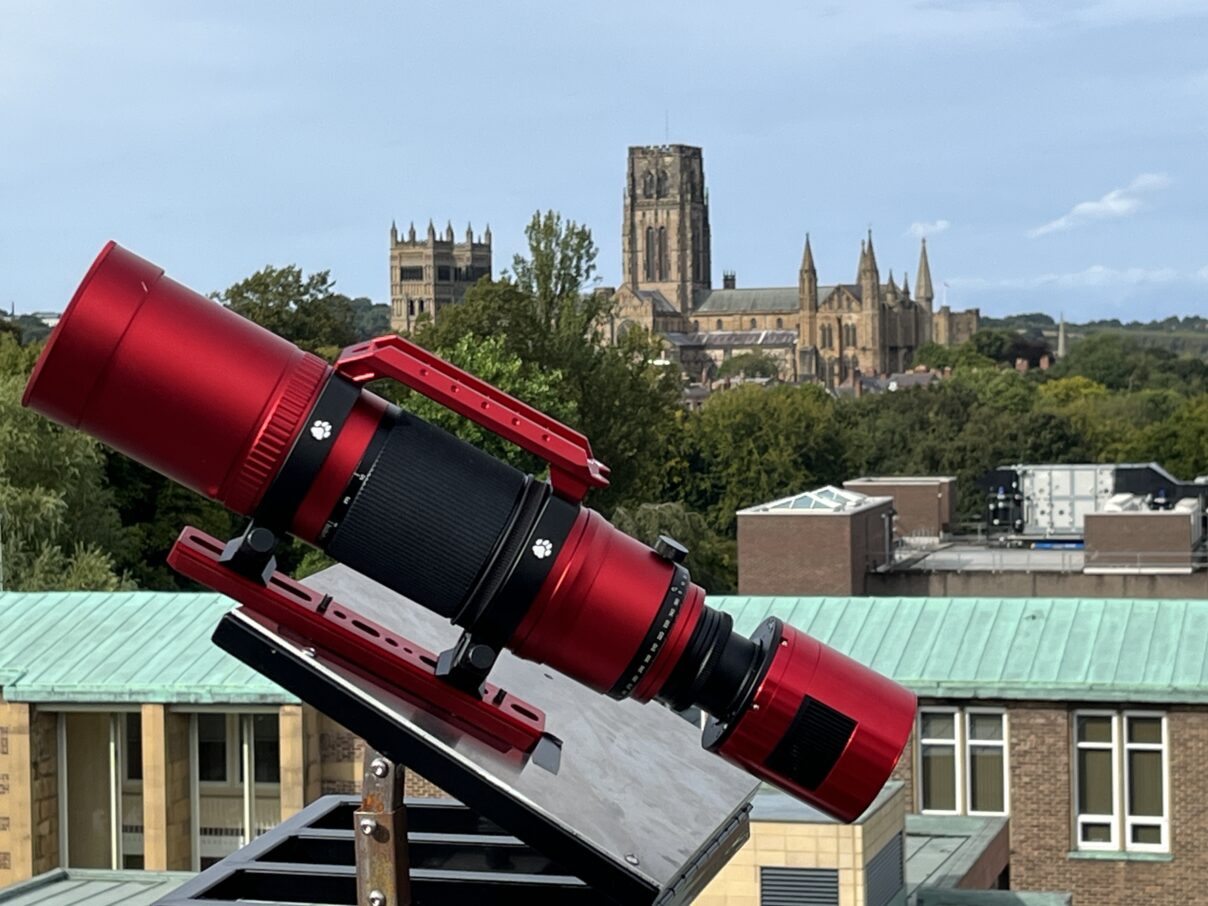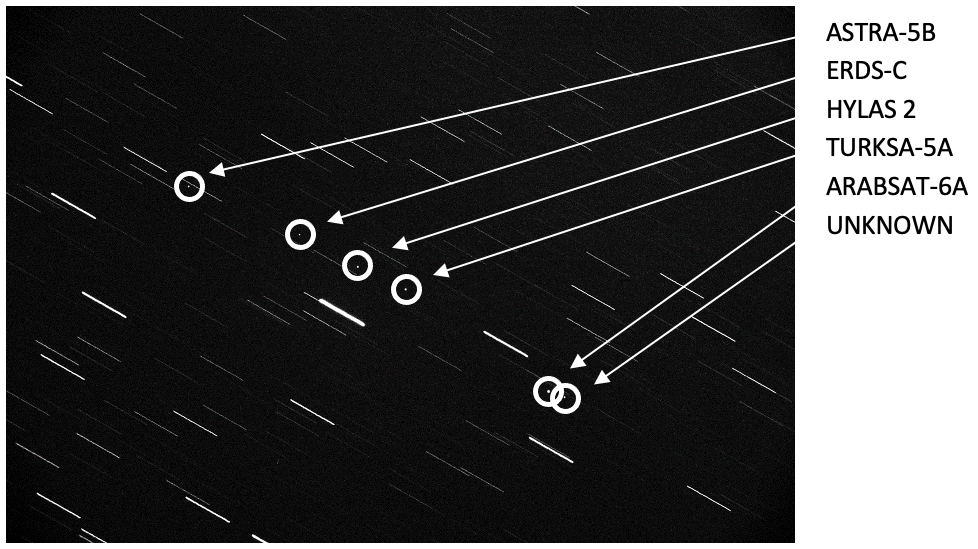Space Surveillance and Tracking
Space sustainability is an emerging and critical concern. It is essential to protect the space environment for future generations whilst also growing the capacity and capabilities of space applications. To achieve this continuous, complete and precise monitoring of the space environment is required. This information can improve and add confidence to satellite collision warnings for operators and national agencies, enabling better decision making, directly inform and monitor national and international policy, and support in-orbit servicing and manufacturing.
We are developing the instrumentation for a new global space monitoring network using 100-1000 sensors combined with sophisticated distributed big data analysis and machine vision techniques. We intend to develop two small optical devices, one for monitoring Low Earth Orbit (LEO) and another for Geosynchronous Earth Orbit (GEO) to provide space object astrometry at a precision and scale not currently possible. This is an important development given the rapid escalation of the number of objects in our local space environment.
The development will take advantage of the experience and capabilities of Durham University in optical instrumentation, astronomical data analysis and machine vision.
We have developed a proof-of-concept demonstrator capable of continuously (night-time) monitoring of all GEO objects in a limited field of view (approximately 5 degree x 5 degree), with real-time catalogue updates online.
 Figure 1: image of our proof-of-concept demonstrator.
Figure 1: image of our proof-of-concept demonstrator. Figure 2: Example of GEO survey data from prototype sensor
Figure 2: Example of GEO survey data from prototype sensor
Our data is currently observation based, we record and publish observations, matched to objects by proximity to TLE projected orbits. Many objects are not found in the public catalogue and are listed as ‘unknown’.
The object position (RA, DEC) and brightness (apparent astronomical magnitude) are recorded complete with individual uncertainties for each measurement derived from the observation itself. With the proof-of-concept demonstrator we achieve real-time (currently 8 second lag) blind detection of GEO objects with an astrometric accuracy of approximately 2 arcseconds rms (varies depending on observation conditions), which corresponds to approximately 350 metres at GEO orbit. Our sensitivity limit in Durham, observing at 25 degrees elevation is approximately 15th magnitude. In a darker site closer to the equator this would be improved.
Brightness and position are monitored continuously through the night enabling us to characterise the object and its pattern of behaviour. We observe regular brightness variations due to the changing state vector between the 3D structure of the object and the solar phase angle.


Additionally we are exploiting our astronomical Adaptive Optics background to develop very high-precision follow-up capabilities.


/prod01/prodbucket01/media/durham-university/departments-/physics/cfai/CfAI-Webpage-Banner-smaller.jpg)